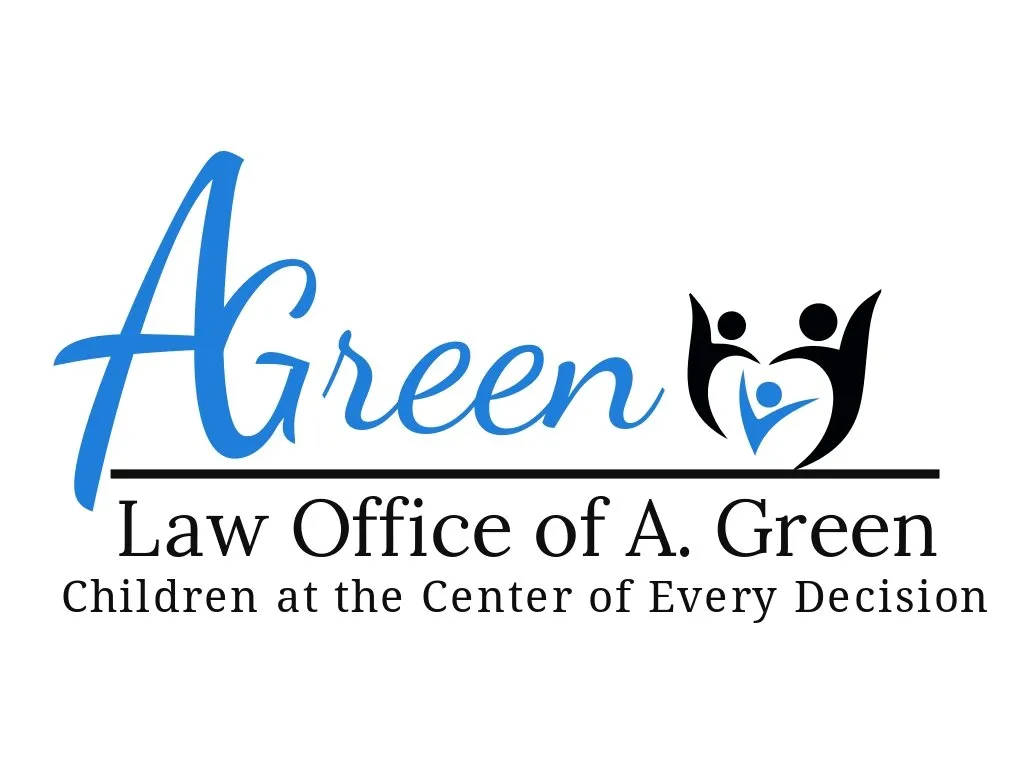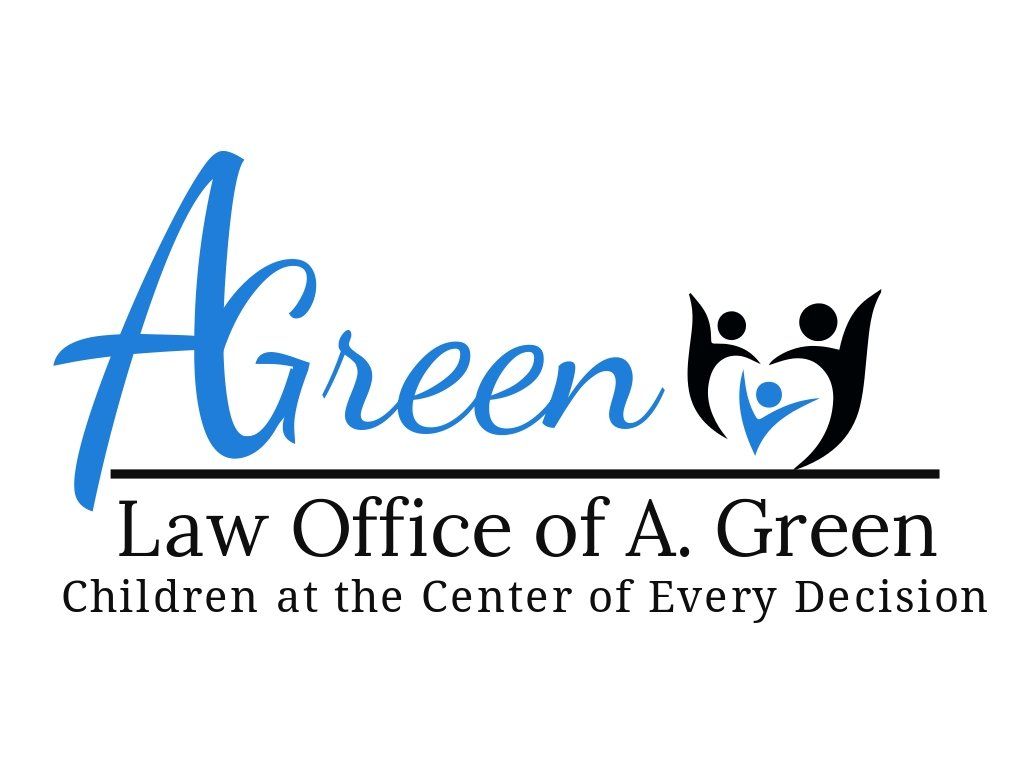Hourly Rate & Billing
Understanding Our Pricing & Billing Polices
Understanding Our Pricing & Billing Polices
We handle uncontested cases for a flat fee based on the terms of our contract with our clients and we also handle contested cases that are billed out hourly against a retainer/deposit fee on deposit with our office.
Get Started
Get Started
Drop us a line and we’ll get back to you!
Thank you for contacting us.
We will get back to you as soon as possible
We will get back to you as soon as possible
Oops, there was an error sending your message.
Please try again later
Please try again later
Flat Fee Pricing
*Available for some cases.
Flat Fee Pricing
*Available for some cases.
Easy Sign-up Process
Easy Sign-up Process
Skilled Attorney
Skilled Attorney
Helpful Staff
Helpful Staff
Pricing & Billing FAQ
Pricing & Billing FAQ
Fee & Billing FAQ
How Much Will My Case Cost?
If your case is an uncontested divorce case with all issues involved in the divorce agreed to, we have a separate page that you check out by
clicking here to learn about our flat fees.
If your case is contested, with one or more issues not agreed to between the parties you should consider the following when considering the cost of your case:
There is no easy answer. The average cost of a contested family law case based on the nationwide average, is roughly $20,000—for each party. However, some people spend less than $2,500 and others spend more than $100,000.
In other words, the total fee for a family law case will depend on your case and situation, but typically in our office our client's contested cases usually are around $10,000 to $15,000 and upward depending on how contested their case is. During your consultation, we will discuss what to expect when it comes to fees with more specificity based on your situation.
Generally, you can expect our attorney to charge between $400 to $450 per hour, depending on your case and what your case requires.
Our support staff which can consist of legal assistants and paralegals also charge for their time at rates between $150 and $200 per hour for non-attorney tasks in an effort to keep your costs down, including communication with you about your case, gathering information, and preparing for hearings/mediations, when appropriate.
Our time is billed in 6-minute increments. For example, a task or communication that takes 1-6 minutes is billed at 0.1 multiplied by the attorney or staff’s person’s time. At your on-boarding meeting we will talk with you about how to best maximize your resources when working with us; such as checklist, utilizing the client portal, and how to produce documents in an organized manner.
We do our part to be economical with your resources and will never overbill you. Every month your bill is carefully reviewed before it reaches you. We are always happy to answer any questions you may have about billing during your case, and you'll also be able to see in real time all work completed on your case and charges.
Do I have to pay an Advance Deposit/Retainer?
Yes, to retain our office for services, you are required to sign a contract and make what is known as an “advance fee deposit” to our client trust account before we can begin representation. An advance fee deposit is also sometimes referred to as a “retainer."
An advance fee deposit is exactly what it sounds like – a deposit made in advance to cover fees.
If there are funds left in your trust account at the end of your case you will receive them back via check or the funds will be returned to your card on file at the conclusion of your case after all fees and expenses have been paid.
If your retainer fall below the minimum balance or what is required for the work anticipated during the representation, you will be required to replenish your original retainer amount as the case continues or the attorney will withdrawal from your case.
We usually give people the analogy of a prepaid phone card when explaining a retainer. With a prepaid card, you have to load the prepaid card and when you use minutes, those minutes are deducted from your prepaid card, and if you want to continue using the prepaid card after all your minutes are used up, you would have to reload the card by purchasing more minutes. A retainer works in the same way.
In our office anytime work that is completed on the cases, for example phone calls, court, research, emails, drafting of documents, etc. all time will be billed against your retainer on file, and if you run out of funds and you want to continue to receive representation from our office, you are required to replenish your retainer.
What options are available to assist me with funding my divorce or family law case?
1. Third-party family law/divorce funding can be apply for and individuals who are approved can obtain funding to assist with the cost of their case. You can learn more about financing options during a consultation with our office.
Often, potential clients would like our office to offer financing or a payment plan. The law firm is not a financial institution and does not offer financing the way a bank or lender does. Your existing bank or credit union may be able to provide personal loan options if you are not interested in a a third-party family law/divorce funding option.
2. Many people use credit cards to pay their retainer. If your case is a divorce, one possible advantage to using credit cards is that the total debt may be divided between spouses. This means if you don’t have access to funds but you do have access to credit, the debt may be reallocated later in settlement between you and your spouse. In any family law case, you can always ask for attorney fees to be paid by the other side, but we always caution potential new clients that an award of attorney fees is not a guarantee and is at the court's discretion.
3. Some people receive a gift or a loan from their family or friends during their family law or divorce case. As a friendly reminder, in our office family or friends can pay for representation, but our client alone will control the objectives of the case and will be the only person we communicate with regarding the case.
Ready to Get Started? Ask About Financing

By Ashley Green
•
26 Apr, 2024
In today's fast-paced world, finding quality time to spend with our children can feel like an uphill battle. Between work commitments, household responsibilities, and other obligations, it's easy for meaningful moments to slip through the cracks. However, prioritizing time with our children is essential for building strong relationships and creating lasting memories. In this blog, we'll explore practical strategies for maximizing quality time with your child, even in the midst of a busy schedule and balancing a child custody case. 1. Establishing Priorities Reflecting on the importance of spending time with your child and the impact it has on their development and well-being. 2. Setting realistic goals for increasing the amount of time spent with your child and committing to making it a priority. 3. Exploring the benefits of establishing daily, weekly, or monthly rituals that provide opportunities for bonding and connection. 4. Emphasizing the importance of consistency and reliability in building trust and strengthening your relationship with your child. 5. Highlighting the value of seizing spontaneous opportunities for connection, such as car rides, meal preparation, or walks in the neighborhood. 6. Encouraging mindful presence and active listening during everyday interactions with your child, regardless of the activity or setting. 7. Prioritize unplugged activities that promote face-to-face interaction and meaningful conversation. Spending quality time with our children is not only a privilege but also a responsibility that shapes their growth, happiness, and well-being. By prioritizing meaningful moments, establishing rituals and routines, and embracing flexibility, parents can maximize the time they have with their children and create lasting memories that will endure for a lifetime, especially during a child custody case. Remember, it's not about the quantity of time but the quality of the moments shared together that truly matters. Please contact us today to determine how we can be of service to you with your child custody case and ensure the best interest of your children is at the center. Book your consultation today to start the process by clicking here or give us a call at 832-844-1677. Attorney, Ashley Nicole Green is a divorce and child custody attorney who services clients in Houston, Harris, Fort Bend, Brazoria, Galveston, and Matagorda County! C ontact the Law Office of A. Green today to schedule consultation! You can always connect with us via phone 832-844-1677 or via email at agreenteam@lawofficegreen.com

By Ashley Green
•
21 Mar, 2024
Divorce and child custody cases can be emotionally challenging, especially when children are involved. To prioritize the well-being of your children during these proceedings, it's essential to be mindful of your actions and behaviors. In this blog, I explore behaviors to avoid as they can negatively impact your children in Texas child custody cases. 1. Conflict and Hostility Constant conflict and hostility between parents create a stressful and emotionally turbulent environment for children. Engaging in heated arguments or openly displaying animosity can have lasting emotional effects on your children. 2. Using Children as Pawns Using children as tools to gain leverage or control in the divorce process is highly detrimental. Avoid involving them in disputes, manipulating their emotions, or pressuring them to take sides. Children need a supportive and neutral space during divorce proceedings. 3. Negative Talk About the Other Parent Speaking negatively about the other parent in the presence of your children can be harmful. Avoid making derogatory remarks or attempting to alienate the other parent. Children benefit from positive relationships with both parents. 4. Failure to Maintain Consistency Inconsistency in parenting practices and schedules can contribute to confusion and insecurity for children. Strive to maintain a consistent routine and structure, minimizing disruptions to their daily lives during the divorce process. 5. Ignoring Children's Emotions Divorce is a significant life event for children, and their emotions should be acknowledged and addressed. Dismissing or ignoring their feelings may lead to increased anxiety, resentment, or feelings of isolation. 6. Unreliable Financial Support Failing to fulfill financial responsibilities, such as child support payments, can impact the well-being of your children. Consistent financial support is crucial for providing stability and meeting their essential needs. 7. Involving Children in Adult Matters Shield your children from adult matters, legal discussions, or financial details. Exposing them to complex issues beyond their understanding can burden them with unnecessary stress and anxiety. 8. Neglecting Communication with Co-Parent Open communication with the co-parent is vital for the well-being of your children. Avoiding communication or refusing to collaborate on parenting decisions can create an environment of tension and instability. 9. Introducing New Relationships Prematurely Introducing new romantic relationships too soon can be unsettling for children. Give them time to adjust to the changes brought about by divorce before introducing them to new partners. 10. Ignoring Court Orders Disregarding court orders or attempting to circumvent legal decisions can have serious consequences. Adhering to court orders demonstrates respect for the legal process and stability for your children. Negotiating a divorce and child custody arrangement is challenging, but prioritizing the well-being of your children is paramount. Avoiding conflict, negative talk, using children as pawns, and neglecting their emotional needs fosters a healthier environment during the divorce process. Consistency, communication, and respect for legal processes contribute to a more stable and supportive atmosphere for your children as they navigate the changes brought about by divorce. Please contact us today to determine how can be of service to you with your child custody case and ensure the best interest of your children is at the center. Book your consultation today to start the process by clicking here or give us a call at 832-844-1677. Attorney, Ashley Nicole Green is a divorce and child custody attorney who services clients in Houston, Harris, Fort Bend, Brazoria, Galveston, and Matagorda County! C ontact the Law Office of A. Green today to schedule consultation! You can always connect with us via phone 832-844-1677 or via email at agreenteam@lawofficegreen.com

By Ashley Green
•
14 Mar, 2024
Child custody cases in Texas are governed by the principle of promoting the best interests of the child. Hiding the child from the other parent during custody disputes not only undermines the court's commitment to transparency but can also have serious legal consequences. In this blog, I explore the reasons why it is crucial not to hide the child from the other parent in Texas child custody cases. 1. Legal Consequences Concealing the child from the other parent can result in serious legal consequences. Courts view this action as a violation of custody orders and may take enforcement measures against the parent hiding the child, such as fines, modifications of custody orders, or even contempt of court charges. 2. Promoting Co-Parenting Relationships Texas family law emphasizes the importance of co-parenting relationships for the child's well-being. Hiding the child disrupts the opportunity for both parents to maintain a meaningful relationship with their child, hindering the child's ability to form a strong bond with each parent. 3. Court Consideration of Parental Conduct The conduct of each parent is a significant factor considered by the court when determining custody arrangements. Deliberately hiding the child from the other parent can reflect negatively on a parent's willingness to cooperate and foster a healthy co-parenting environment. 4. Maintaining Trust with the Court Trust is crucial in family court proceedings. Deliberate attempts to hide the child erode the court's trust in a parent's commitment to following court orders and promoting the child's best interests. Trust is a cornerstone of successful co-parenting arrangements. 5. Child's Emotional Well-Being Children often experience stress and confusion when one parent is hidden from them. It can lead to emotional distress and a sense of insecurity. Courts prioritize the emotional well-being of the child, and actions that cause emotional harm may influence custody decisions. 6. Communication and Conflict Resolution Hiding the child hampers effective communication and conflict resolution between parents. Open communication is vital in co-parenting relationships, and resorting to hiding the child instead of addressing concerns through legal channels can exacerbate conflicts. 7. Addressing Concerns through Legal Means If a parent has legitimate concerns about the child's safety or well-being with the other parent, it is essential to address these concerns through legal means. Courts provide mechanisms for addressing concerns, such as seeking modifications to custody orders or requesting court intervention. 8. Ensuring Stability for the Child Stability is crucial for a child's healthy development. Hiding the child disrupts established routines, school attendance, and social connections, potentially impacting the child's overall stability. Courts prioritize the child's need for a stable and consistent environment. In Texas child custody cases, transparency, cooperation, and adherence to court orders are paramount. Deliberately hiding the child from the other parent not only has legal consequences but also undermines the principles of co-parenting and the best interests of the child. Addressing concerns through legal channels, maintaining open communication, and promoting stability are essential for fostering a healthy co-parenting environment and ensuring that the child's well-being remains a top priority throughout custody proceedings. Please contact us today to determine how can be of service to you with your child custody case and ensure the best interest of your children is at the center. Book your consultation today to start the process by clicking here or give us a call at 832-844-1677. Attorney, Ashley Nicole Green is a child custody attorney who services clients in Houston, Harris, Fort Bend, Brazoria, Galveston, and Matagorda County! C ontact the Law Office of A. Green today to schedule consultation! You can always connect with us via phone 832-844-1677 or via email at agreenteam@lawofficegreen.com

By Ashley Green
•
12 Mar, 2024
Child custody cases in Texas prioritize the safety and well-being of the child. When issues of drugs or domestic violence arise, they can significantly influence court decisions regarding custody arrangements. In this blog, I explore how drugs and domestic violence can negatively impact a child custody case in the Lone Star State. 1. Primary Focus on the Best Interests of the Child Texas family courts prioritize the best interests of the child when making custody determinations. Any factors that pose a threat to the child's safety or well-being, such as drugs or domestic violence, are taken seriously and can significantly influence the court's decision. 2. Impact of Substance Abuse Substance abuse, including drug addiction, raises serious concerns about a parent's ability to provide a safe and stable environment for the child. Courts assess the impact of substance abuse on parenting abilities, reliability, and overall fitness to determine custody arrangements. 3. Safety Concerns with Domestic Violence Domestic violence, whether physical, emotional, or psychological, poses a direct threat to the safety of the child and the custodial parent. Courts recognize the potential harm that exposure to domestic violence can have on children and may take measures to protect their well-being. 4. Documentation and Evidence Courts rely on documentation and evidence to substantiate claims of drugs or domestic violence. Providing clear and compelling evidence, such as police reports, medical records, or eyewitness testimonies, strengthens the case against a parent engaging in unsafe behaviors. 5. Custodial Parent's Responsibility The custodial parent has a responsibility to ensure the child's safety. If the custodial parent is involved in drugs or is a victim of domestic violence, the court may question their ability to create a secure and nurturing environment, potentially impacting their custodial rights. 6. Protective Orders and Legal Actions Protective orders, restraining orders, or other legal actions taken against a parent involved in domestic violence may influence the court's decision. These legal measures demonstrate the gravity of the situation and the need for protective measures. 7. Substance Abuse Treatment Programs Parents struggling with substance abuse may have the opportunity to address their issues through rehabilitation programs. Participation in such programs can be considered by the court, but successful completion is often a prerequisite for favorable custody decisions. 8. Supervised Visitation or Restricted Custody In cases where concerns about drugs or domestic violence exist, the court may opt for supervised visitation or restrict custody to ensure the child's safety. These measures aim to balance the child's right to maintain a relationship with both parents while prioritizing their well-being. Drugs and domestic violence can have profound and lasting effects on child custody cases in Texas. The court's primary focus on the best interests of the child means that any factors posing a threat to the child's safety will be carefully examined and addressed. Substance abuse or involvement in domestic violence may lead to supervised visitation, restricted custody, or other protective measures to ensure the child's safety and well-being. Seeking legal advice and presenting clear evidence is crucial when addressing these complex and sensitive issues in child custody proceedings. Please contact us today to determine how can be of service to you with your child custody case and ensure the best interest of your children is at the center. Book your consultation today to start the process by clicking here or give us a call at 832-844-1677. Attorney, Ashley Nicole Green is a child custody attorney who services clients in Houston, Harris, Fort Bend, Brazoria, Galveston, and Matagorda County! C ontact the Law Office of A. Green today to schedule consultation! You can always connect with us via phone 832-844-1677 or via email at agreenteam@lawofficegreen.com
Principal Office Location | Bellaire, Texas
6300 West Loop South, Suite 610
Bellaire, Texas 77401
By Appointment Only | Sugar Land, Texas
14090 Southwest Freeway, Suite 300
Sugar Land, Texas 77478
By Appointment Only | Bay City, Texas
1400 8th Street Suite 6B-1
Bay City, Texas 77414
Tel: 832-844-1677
Fax: 832-787-1167
Monday-Thursday 8:00A.M.-5:30P.M.
Friday 8:00A.M.-1:00P.M.
The Law Office of A. Green is dedicated to proudly serving clients in Harris, Brazoria, Chambers, Fort Bend, Galveston, and Matagorda County, in the practice of family law, divorce, adoptions, child custody, and child support cases.






